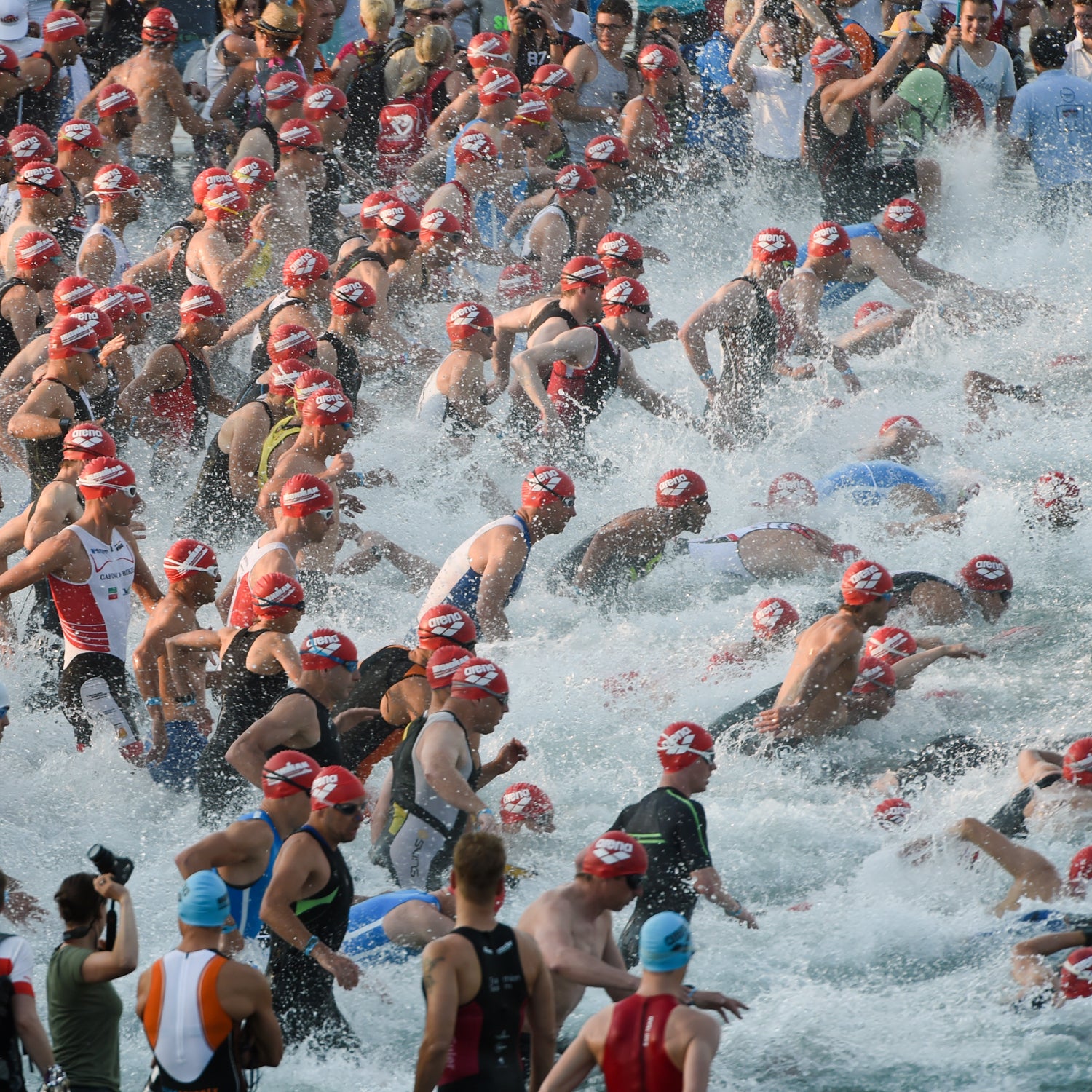In late August, Chinese real estate conglomerate Dalian Wanda Group Co. Ltd. bought��Ironman owner , which was previously owned by Providence Private Equity,��for a grand total of between��. Speculation about a sale had been building since last summer, when WTC highlighting its profitability, and ��began pondering what new owners would mean for the brand—would they hype merchandising and licensing deals? Would the races change in any way? Now we have an answer:��The sport is poised to grow exponentially in Asia, but things in the U.S. are likely to be business as usual.��
“I remain the CEO, we’re still based in Tampa, Florida, the core management team is the same, and the core mission of creating great experiences for athletes around the world is unchanged,” says WTC CEO Andrew Messick. In other words, while the owners may have changed, Ironman and the races it runs have not. ��That’s partly because the man behind the purchase, billionaire Wang Jianlin, has a history of taking over large American corporations while operating with a light touch. When Jainlin bought AMC theatres in 2012 he kept the company’s American management team and focused on improvements rather than overhauls, , by upgrading theatres to ��while emphasizing that the Chinese company would never be involved with decisions about which films were shown in American theaters.��
A Wanda representative could not be reached for comment, but it seems like Wang has no reason to mess with the Ironman’s current formula either. Net profits, under Messick’s four-year tenure as CEO, have ��since he took over. ��
As it stands now, it wouldn’t be a stretch to say China’s triathlon scene is much like the one that existed in the U.S. in the late ‘80s and ‘90s. That emerging market is exciting for athletes who relish more opportunities to race in Asia.
But why purchase Ironman in the first place? According to Messick, Wanda has —which includes commercial real estate (shopping malls, mostly), cinemas, theme parks, hotels, department stores, travel and film production companies—on the idea that there’s a burgeoning middle class in China that may be a relatively small proportion of the population, but in terms of absolute numbers is humongous. “The belief is that, like everywhere else in the world, participation in sports and a healthy lifestyle segment is going to emerge, and Ironman has the operational knowledge and skills and horsepower to be able to help create a mass-participation business,” Messick says. And Wanda has the political connections in China to fast-track Ironman’s development there.
����
As it stands now, it wouldn’t be a stretch to say China’s triathlon scene is much like the one that existed in the U.S. in the late ‘80s and ‘90s, when there were pros and a small but enthusiastic age-group contingent, but not much else. That emerging market is exciting for athletes who relish more opportunities to race in Asia. It’s also a potential boon to pros struggling to stay relevant when their presence isn’t needed to sell out events elsewhere, says Rich Allen, Executive Director of an advocacy group for pro triathletes called .
“If Wanda is serious about developing the sport in China, they might want to showcase it with some big races, big prize purses, and help develop pro role models.”
“In the very early stages, there were superstars in the sport,” says Allen, who raced pro from 1993 to 2013. The performances of pros like Mark Allen, Simon Lessing, and Michellie Jones captured public imagination and put triathlon on the map. “They really took the sport to a higher level. If Wanda is serious about developing the sport in China, they might want to showcase it with some big races, big prize purses, and help develop pro role models.”
��
Indeed, Wanda and Ironman seem to understand the importance of pro role models in developing a new triathlon market. The press conference announcing Wanda’s purchase of WTC, Messick says, featured , the first Chinese pro to qualify for Kona.
��
Overall��it seems, both pros and the triathlon community at large are optimistic about Wanda’s WTC purchase. “It’s obviously good for the sport,” Allen says. No longer is triathlon the pastime of a few fitness freaks. Such a huge investment in WTC’s events validates the sport’s importance and continued relevance on the world stage. “It shows that the sport as a whole is going in the right direction.” ��


